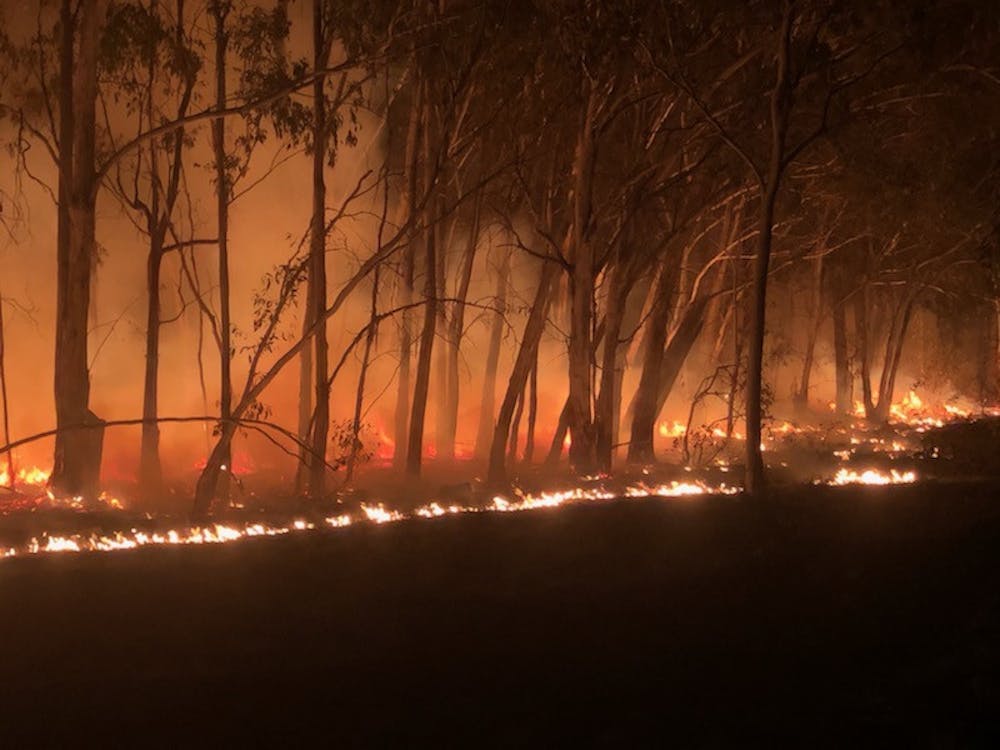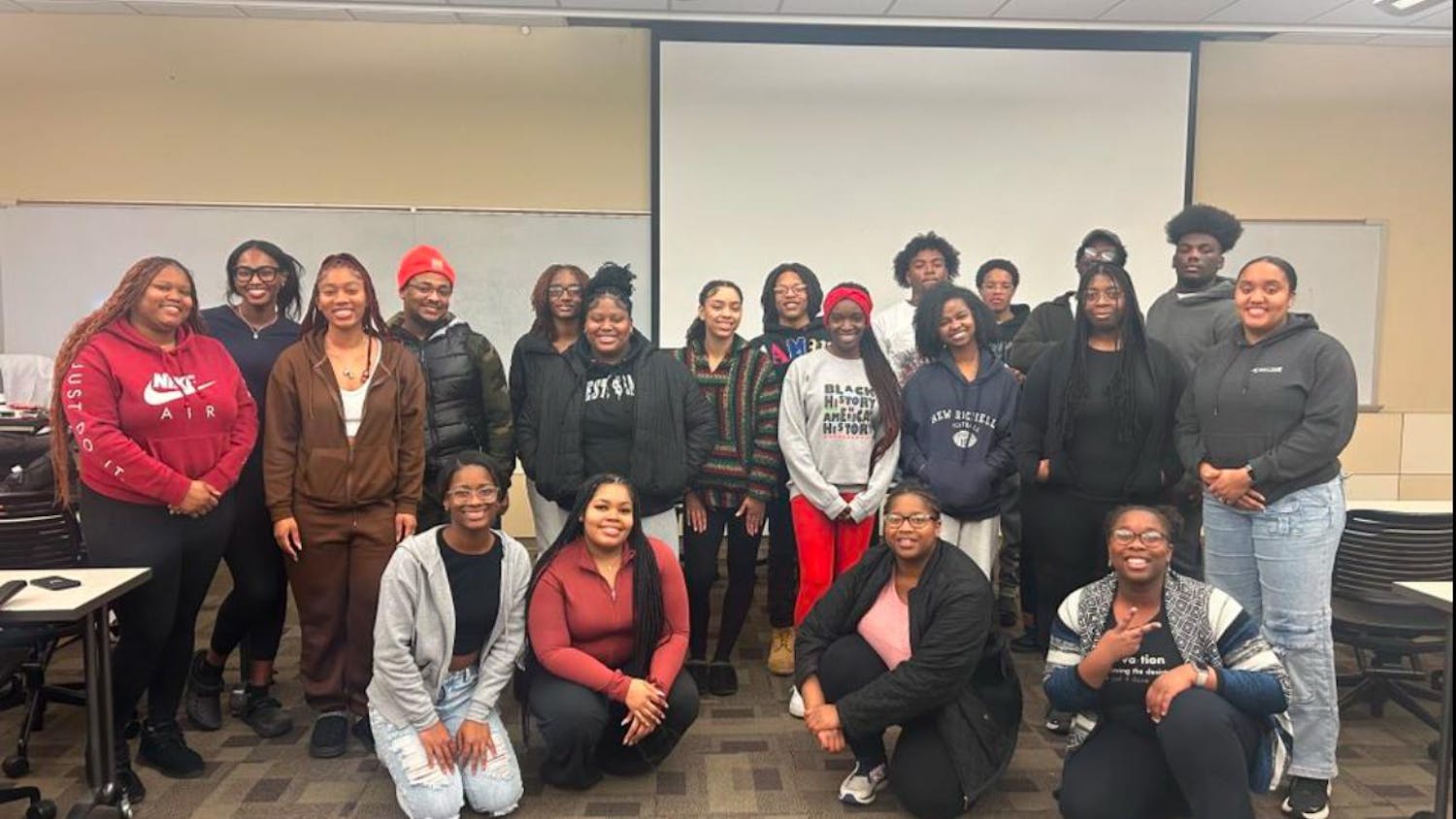Photo provided by Captain Glenn Squire, Country Fire Authority New South Wales
Country-wide bushfires have been raging through Australia since November. Australia is currently in the thick of their summer, which begins in December and ends in February.
As the world watches the country rescue its people and animals from the blaze, Wright State University (WSU) President Dr. Susan Edwards is thinking about her family and her former home.

A native perspective
“I think I'm like the rest of the world where you just see the devastation for a large population of diverse animals that aren't found anywhere else in the world. I think that's really where this is really struck a chord with the world, but I think it's a it's a bigger conversation,” said Edwards.

Edwards has lived in the United States since 2007, according to WSU’s webpage.
“I could probably only name you a handful, and I lived there for 40 plus years, but I can only really name you a handful of years in my memory, where we were not in a drought,” said Edwards.
Australia has a Country Fire Authority (CFA) in which volunteer firemen are sent to fight the fires, according to Edwards.
Edwards’ brother-in-law is a captain in a local CFA.

The precautions
“Australia has always taken these things very seriously because it is one of the driest countries in the world,” said Edwards.
Australia’s summer months are referred to as fire season. Due to the dry climate, Australia often participates in water restrictions during this season, according to Edwards.
The Australian Bureau of Meteorology (BOM) imposes different levels of water restrictions according to the weather. The restrictions include restricted use of hoses and specific times of day that citizens can water their lawn to avoid risk of evaporation.
Australian citizens are accustomed to these practices after having lived in this environment. Fire season isn’t taken lightly, it’s something that is imposed upon the people from a very young age, according to Edwards.
“Having grown up spending time in those areas as a kid, that's the sad part,” said Edwards. “Those areas, they will rebuild just like everywhere else but it will always be in the back of people's mind.”
Edwards had a deep connection to Australian fires from the start. Her father retired from the local CFA.
“He [Edwards' father] would disappear for weeks on end. People give you time off work to go out and fight these fires. so I remember him disappearing for weeks on end, there's no cell phones in those days,” said Edwards. “I remember him leaving to go to that and I can still smell the smell of when he came home because it was just this burnt smoke smell.”

The changing environment
“Australia is often thought of as the canary in the coal mine when it comes to the effects of climate change. The effects of climate change being seen here, most severely and the earliest are perhaps what we are looking at in terms of climate change in other parts of the world,” Edwards quoted from Chris Dickman, professor in the Faculty of Science at The University of Sydney.
Kangaroo Island was deeply affected by the fires.
The island has a huge population of koalas and kangaroos, of which they were put there for a safe space. This island contained the only koalas that do not contain a susceptibility to chlamydia, and massive amounts of life have been lost, according to Edwards.
“Something is happening to our climate. We are losing our polar ice caps, and we're seeing the oceans warming. You know, there is something happening and we're not really doing a great deal about it,” said Edwards.
Red Cross Australia and the Australia Zoo are two prime sites for donation, according to Edwards.
“I think the thing that people need to be wary of is donating, there are a number of very credible sites for donations out there, but people always need to do their homework on where they donate,” said Edwards.
WSU does not have any students directly from Australia, according to Michelle Streeter-Ferrari, director of University Center for International Education (UCIE).













